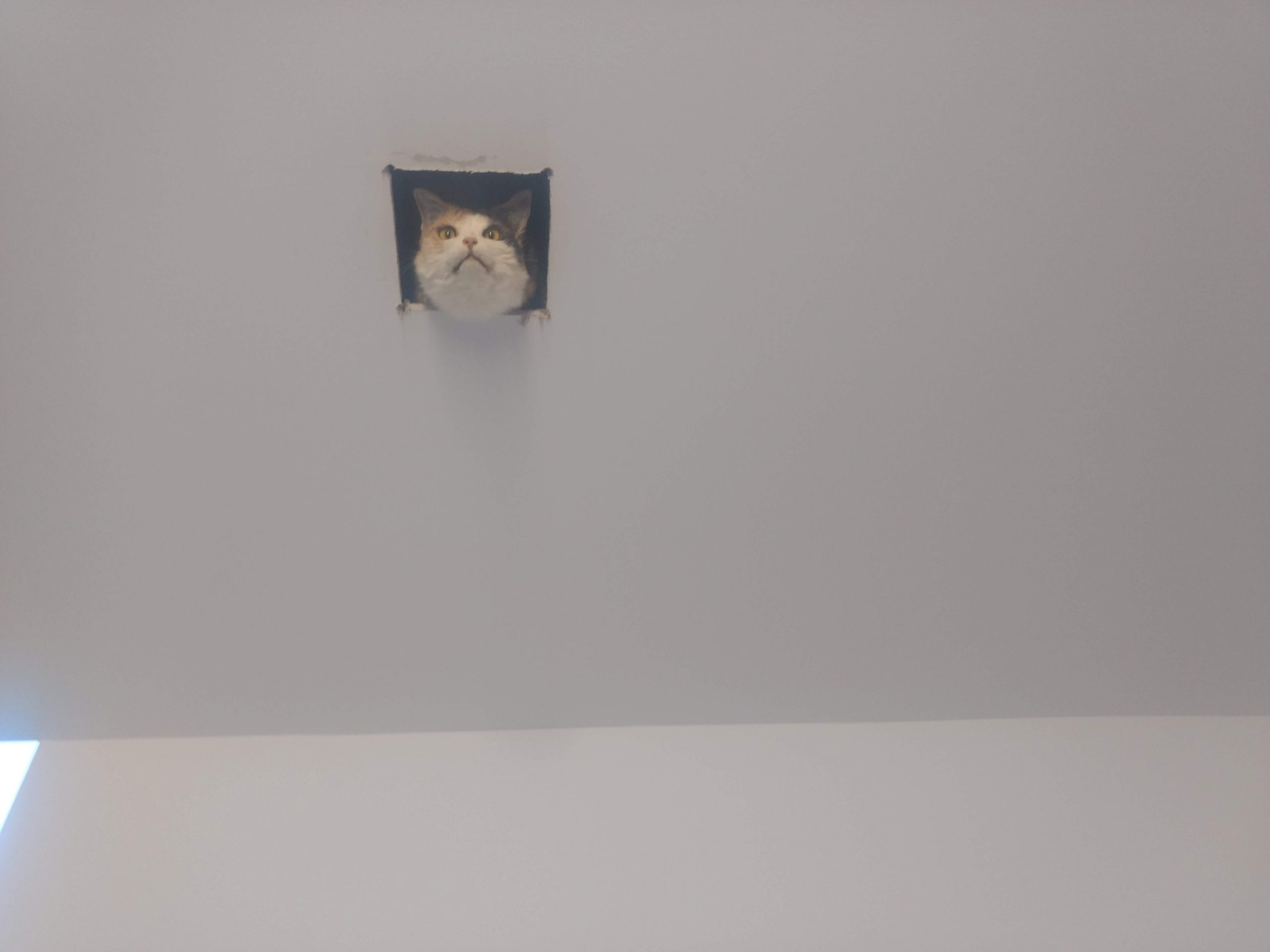Thoughts on the Fondation Phi’s current exhibitions
Listen and be amazed. These words from The Meaning of Style followed me home after seeing the Eva & Franco Mattes and Phil Collins’ exhibitions at the Fondation Phi pour l’art contemporain. (No, not Genesis’ Phil Collins, this Phil Collins is an artist and filmmaker, and yes, they are both from England.)
The title of the video [The Meaning of Style] doesn’t seem to fit with the piece. The short, four minute and 50 second film “features a group of anti-fascist Malay skinheads who appear to transcend reality and representation, circulating between the imaginative and literal spaces of cinema,” according to Harvard’s Carpenter Center for Visual Arts.
This specific information, about all of Collins’ shorts at Phi, isn’t as readily present, even in the exhibition’s programme. Instead, you’re left to wander from screen to screen and soundproof booth to soundproof booth wondering if Genesis’ Phil Collins had a secret filmmaking practice. It would make sense if he did, all the videos in the exhibition are about the relatability of music and creating various intimate installations to sit and listen.
Juxtaposed with Eva & Franco Mattes’ What Has Been Seen, the Collins’ exhibition becomes even more intriguing. According to the duo’s website, “the title refers to the “What Has Been Seen Cannot Be Unseen” meme, an internet axiom which states that repulsive, disturbing, or horrific sights can never be erased from memory once they have been seen.”
Their work forces the viewer to change the way they approach, view and generally interact with, and on, the internet. Viewers are first confronted with a smashed old desktop computer looping videos you may or may not recognize from the early 2000s. Then, you’ll walk into an open, white room, entirely empty except for a large screen and an orange cable. The individuals on the screen look back at you in shock, and you’ll wonder if they can actually see you; if Eva and Franco Mattes installed a webcam and instructed people at the other end to react to your presence. I won’t ruin the surprise.
Then you’ll continue onwards, heading up Phi’s four floors, and maybe you’ll notice the Ceiling Cat, or then again, maybe you won’t. Maybe you’ll just climb up the stairs and be totally thrown off guard by the TV tents and the fuzzy red carpet. Are you supposed to lie down on the ground and actually watch these videos? Or appreciate them as a sculptural object? You can definitely hear them.
Your choice. Either way, you’ll be confused. All the different Phis (Fondation Phi, Centre Phi), Phil Collins, and now this?
The way objects occupy space will really change the way you interact with them, in art museums, online and out and about in the world. We go about our lives intrinsically knowing what is okay to sit on and what isn’t. The floor usually isn’t it, especially in galleries and museums. But I’m a big floor-sitting advocate. Eva & Franco Mattes appear to be too.
Follow their collection of personal photographs upstairs. You won’t be able to actually see the images, but they’re there, through the wires and under the floorboards.
Data surrounds us at every turn, but we rarely confront it physically. Eva & Franco Mattes’ maze forces us to but doesn’t privy you to their contents. They are personal photographs after all.
The last stop is entirely different. Finally, wall art, something normal. Except it’s not. Oh and there’s another cat. Turns out they’re taxidermied (yeah, the Ceiling Cat too), creepy.
Abuse Standard Violations depicts images and text leaked from the duo’s interviews with web content moderators. One of these things is not like the other? Which images are ‘clean?’ How should they be classified? To flag, or not to flag?
Content moderation is one of the most interesting, mundane and horrifying professions that exist in today’s internet-dependent world. What has been seen, the three videos that follow Abuse Standard Violations, truly cannot be unseen—the duo’s way of forcing you to connect to these works in the most uncomfortable way. They moderate your behaviour. (Unless you live by a strong politics of refusal, are no fun or have bad knees.)
The work forces you to confront a world you aren’t familiar with, a world of the matrix, the other side of our crystal clear, greasy and cracked screens, changing the way we relate to our physical surroundings and to each other.
Now is your last chance to visit both exhibitions at the Fondation Phi pour l’art contemporain (451 and 465, Saint-Jean Street) until March 15. The gallery is open Wednesday to Friday from 12 p.m. to 7 p.m. and from 11 a.m. to 6 p.m. on the weekends. Admission is free.
Photos by Chloë Lalonde.
